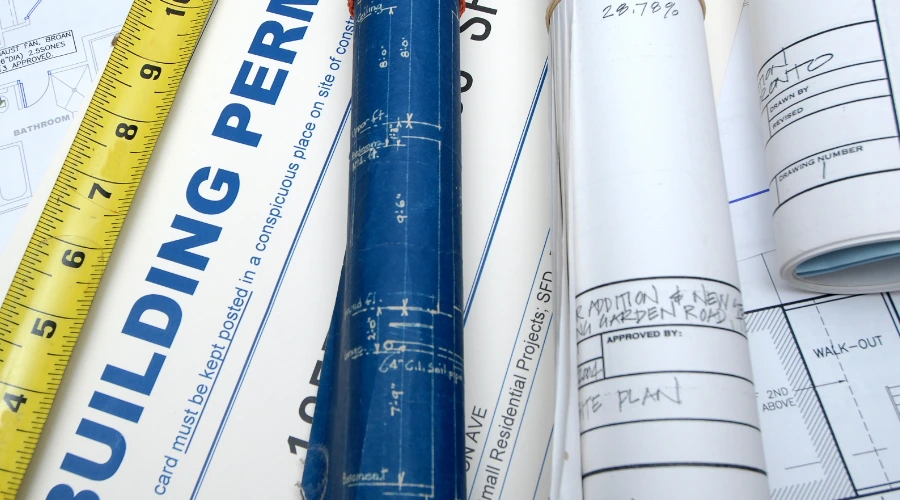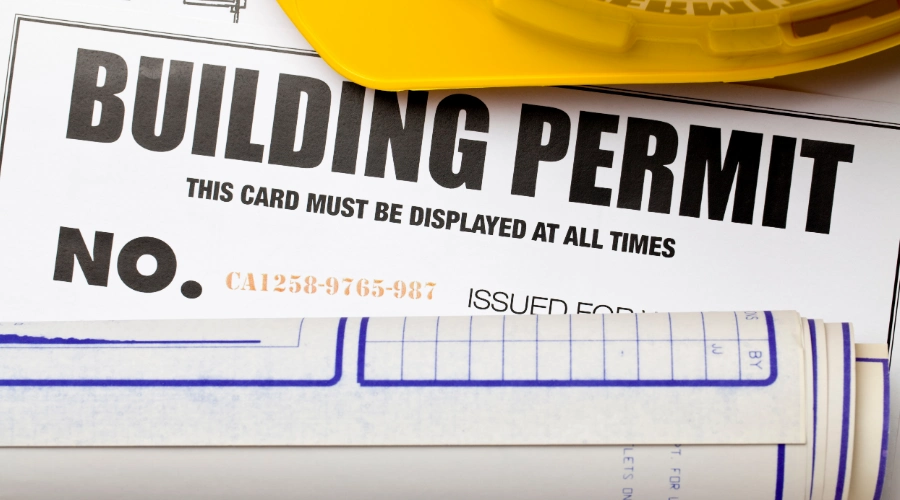In India, getting construction permits can be a bureaucratic hurdle. This puts pressure on some homeowners and builders to think of avoiding them. Nevertheless, the penalties for construction without a permit are quite steep. It is common to have significant consequences that may be bothersome for many years.
In this blog, the risks of undertaking construction activities without permits in India are discussed.
The Importance of Building Permits in India
Building permits in India are vital safeguards for homeowners. They make sure that the construction is done according to the laws and regulations of the country and the specific site region. Such codes are intended to safeguard the welfare and lives of residents including the homeowner and the neighbours.
To be sure, that your home meets the necessary norms, you need to obtain the necessary permits. They mandate structural, electrical, and fire protection standards to be followed.

Potential Consequences of Building Without a Permit in India
Legal Issues and Fines:
In India, building without permission is often seen as breaking construction and planning laws.
This can lead to massive penalties and lawsuits. It also may cause the local authorities to demand the removal or even demolition of the unauthoriszed construction.
According to the Ministry of Urban Development, the average fine for a building permit violation in India is between ₹50,000 and ₹ 1,000,000.
The cost varies depending on the level of infraction and geographical location of the offender.
Safety Concerns:
Some buildings in India do not have building inspectors. So, they may lack safety measures.
This exposes occupants to risks of structure collapse, electrical shock or short circuit, and other such risks.
The report released by the NDMA ( National Disaster Management Authority ) states that houses that are constructed without proper permission are at a higher risk of collapse during natural calamities.
Difficulty in Selling or Refinancing:
When it’s time to sell your home or refinance your mortgage in India, the lack of a building permit can be a big problem.
Lenders and buyers will be wary of the legal and financial risks. This could lead to lower offers or the inability to complete the transaction.
Insurance Complications:
Many Indian homeowners may have insurance. But, it does not cover losses from unapproved additions. You would bear all expenses in any related matters.
At its worst, insurers may simply decline to offer plans at all. This will happen if they find some work has been done by unauthorised persons.
Retroactive Permit Challenges:
In some cases, you may be able to get a retroactive permit. This is for unpermitted construction in India.
However, this process takes time and money. It may still result in fines.
Also, the permit is not guaranteed. Local authorities may require the removal or change of the unauthorised work.
Exceptions and Exemptions

There are some exemptions to be made to the permit provision above. These depend on the type of project undertaking and its general characteristics
For example, to paint your house a different colour, or to change the doors of your house, you don’t need a permit in most Indian states. Even in cases where one has to repaint the wall, put up new wallpapers, or change flooring, a permit is not required.
Furthermore, any project of a limited size and scale like a new fence or even a small shed, may not require a permit. It’s advisable to consult the local building department for accurate information on the additions or changes required
Navigating the Permit Process in India
The permit process in India may seem daunting. But, it is’ essential to work closely with your local building department to ensure you’re following all the necessary steps.
This requires producing strategic plans that include detailed working documents. Some states require certain inspections, and you need to ensure that you get them. But it will involve dealing with concerns or code issues where they exist.
One way to speed up getting permits is to involve the right professionals. Also, be in active talks with authorities. This will guarantee a successful construction project which does not. violate the set standards.
The Role of Architects and Engineers
It is equally important to have qualified architects and engineers on board when undergoing the permit process in India.
They can be informative in creating a project incorporating all the required codes and rules, which will help it gain approval without any issues.
They can also help prepare the needed documents. These include plans and area calculations, which are necessary to get a permit.
The Importance of Zoning Regulations
In India, laws on land division and use are outlined in the Zoning regulation and city master plans. They dictate the kind of structure that can be built in a zone. Failure to adhere to the law regarding zoning can pose legal consequences and penalties may be given out.
The Consequences of Unpermitted Additions and Renovations
It’s important to note that the construction of a structure without a permit is not limited to a new structure only. It also applies to adding to and renovating existing structures.
It’s a good example of how even small changes to a structure can greatly impact the safety of its occupants.
Any change or renovation to the house that violates the permit rules has the same impact as not having a permit to build the house or a room.
These are legal problems, security concerns, or difficulties with the sale or Mortgage-backed securities of your home.
Conclusion
It is strongly advisable for all homeowners and aspiring homebuilders in India to follow the proper permit procedures and work closely with local authorities to ensure a safe, compliant, and successful construction or renovation project. Prioritisze the permit process to protect your investment, your family’s safety, and your long-term financial well-being.

